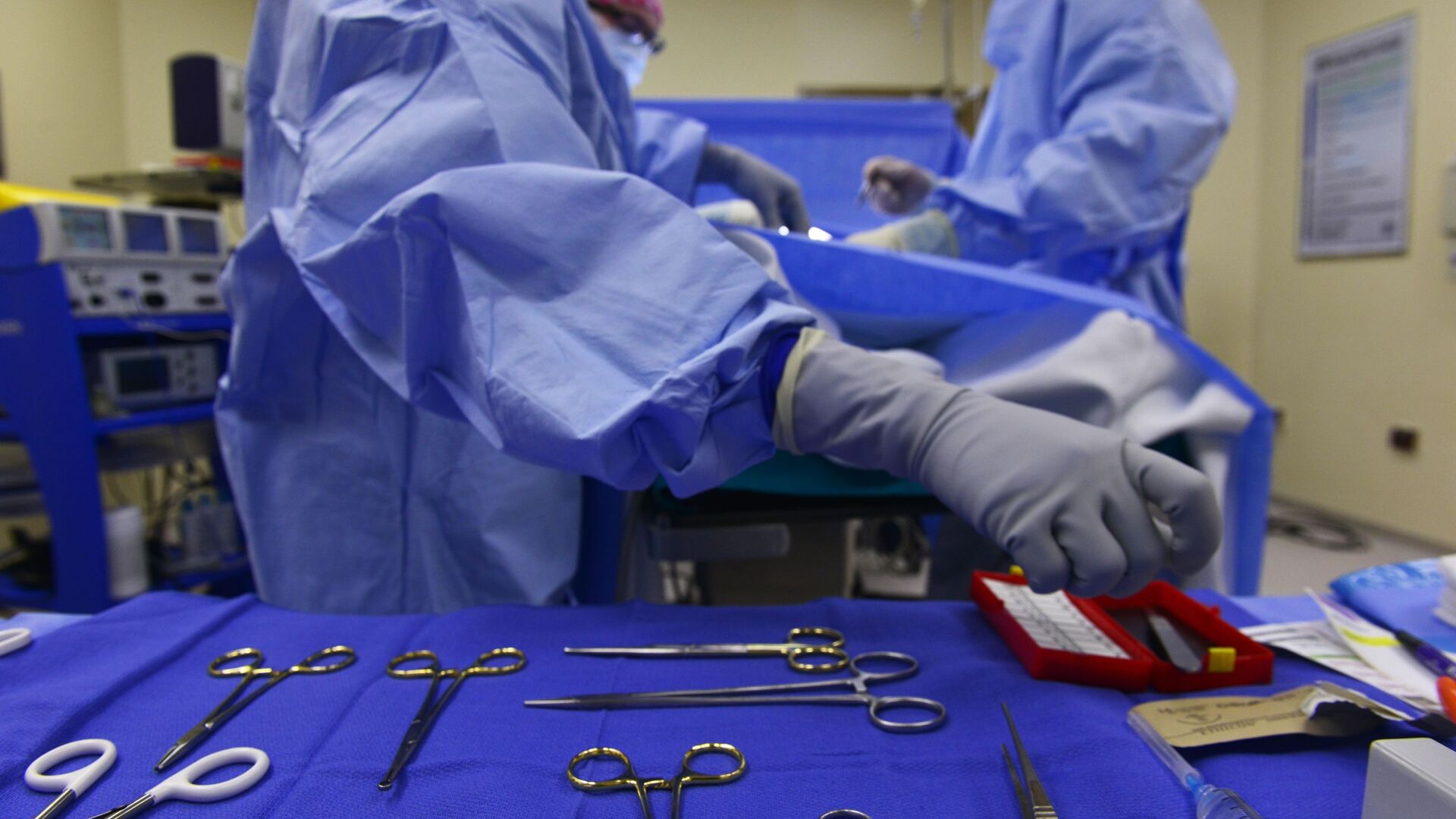What is Russia's Ban on Gender Change?
19:42 29.07.2023 (Updated: 10:50 03.08.2023)

CC0 / /
Subscribe
Russia has banned gender-reassignment surgery and hormone therapy in all cases except when allowed for health reasons.
Russian President Vladimir Putin on July 24 signed a law banning gender change operations, after the upper and the lower chambers of the Russian Parliament passed the legislation earlier this month. From now on, gender reassignment will only be allowed for medical reasons.
What's in the Law Banning Gender Reassignment?
The new federal law bans medical interventions (including the use of drugs) aimed at changing the gender of a person, including the formation of sex characteristics of the opposite sex. Additionally, the law annuls a marriage if one of the spouses changes gender and bans a person from adopting children after gender reassignment.
Are There Any Exceptions?
The only exception will be medical interventions related to the treatment of congenital physiological anomalies, as well as genetic and endocrine diseases caused by an abnormal formation of the genitals in the childhood. These interventions will be allowed on the basis of decisions by medical commissions of organizations subordinate to the Russian Ministry of Health. Based on the results of these medical interventions, commissions will issue the medical reports necessary for changing civil status records.
The list of medical organizations, as well as the procedure for issuing decisions and medical reports with regard to gender reassignment, will be determined by the government of the Russian Federation.
What are Disorders of Sex Development?
Disorders of sex development (DSDs) are a group of rare conditions including chromosomal, gonadal, and anatomic abnormalities. These pathologies are caused by atypical development of the internal and external genital organs of the male and female reproductive system. Some of these conditions can be detected immediately after the birth of a child if his/her external genitalia have an altered structure. In other cases, the diagnosis is made later, if a person has a delay or absence of puberty, or abnormal secondary sex characteristics.
Was Gender Change Previously Allowed in Russia?
Between 2016 and 2022, almost 3,000 of Russian civilians changed their documents due to gender reassignment, according to Vice Speaker of the State Duma Pyotr Tolstoy. In 2022, there were 996 of those cases throughout the country.
In 2013, amendments to the law on the Russian registry offices were made. In Article 70 of the Law "On acts of civil status" a clause appeared that a change in the record of a civil status act due to gender reassignment could be made on the basis of a document issued by a medical organization.
In October 2017, the Russian Ministry of Health released an order on the issuance of a document on gender reassignment by medical organizations. According to the ministry, a medical commission which included a psychiatrist, a sexologist and a medical psychologist had to deal with issues of "sexual reorientation." Prior to that, a psychiatrist provided a patient with a referral for the establishment of sexual reorientation after he/she was diagnosed with transsexualism.
Vice Speaker Tolstoy explained that certain provisions of the federal law will not apply to persons who underwent gender surgery before the day it comes into force.
"The law does not have a retroactive effect with regard to those over 2,000 cases when this [gender change - Sputnik] was done in accordance with the [2017] order of the Ministry of Health," the Duma vice speaker said.
When Was the First Gender Surgery Performed?
It is believed that the first gender change-related surgery was performed by the Institute for the Sexual Sciences, founded by Magnus Hirschfeld in Berlin.
In 1926, the institute reportedly performed the first operation to remove the mammary glands of a woman who decided to change her sex. In 1930, the first penectomy, an operation to remove the penis, was carried out. Patient histories were not preserved.
Elmer Belt is believed to be the first US surgeon to have performed gender affirmation surgery in around 1950.
In the USSR, the first gender reassignment operation was performed by Viktors Kalnberzs, a surgeon working at the Research Institute of Traumatology and Orthopedics, in the Latvian SSR, between 1970 and 1972. Kalnberzs was later criticized by the Ministry of Health of the USSR "for carrying out a mutilation operation that does not correspond to the structure and ideology of the state."

Destin Cramer, left, and Noah Rice place a new sticker on the door at the ceremonial opening of a gender neutral bathroom at Nathan Hale high school Tuesday, May 17, 2016, in Seattle
© AP Photo / Elaine Thompson
Why Did Russia Ban Gender Reassignment Without Medical Reasons?
There are many instances when people have opted to have this life-altering surgery without any underlying physical conditions and then struggled to change back, as Vice Speaker of the Lower House of Parliament Vladislav Davankov stated during his speech on May 25. "We have prepared a bill that does not allow changing gender following a mere request by a person in this position," he said.
Furthermore, Russian lawmakers noted that some private medical entities are profiting from different types of gender change-related surgeries without performing a thorough examination of their patients' conditions.
"An otolaryngologist at the reception asked a teenager who came to remove the tonsils if he wants to change sex! This is propaganda, in which a large number of doctors are involved," former head of the Duma Committee on Health Dmitry Khubezov told the Russian press on June 14.
These operations are not that expensive, making uncontrollable gender transition and subsequent psychological problems with teens and adults a common thing, Russian lawmakers warned.
"Unfortunately, the Ministry of Health does not know how many such operations are being carried out. The price tag of the service does not exceed 30,000 rubles [$333]," Petr Tolstoy emphasized during his June speech before the Duma.
There is a heated debate concerning gender surgery and consequent de-transition in Western society, too. Conservative Westerners oppose the uncontrollable change of sex, complaining that liberal forces are pressuring their respective nation's youth and minors into gender reassignment, sometimes without the consent of their parents.
According to a study published on the website of the US National Library in 2021, 61.9% of transgender and gender diverse (TGD) people reported regretting that they had ever pursued "gender affirmation", broadly defined. Of these, 13.1% reported a history of "de-transition." In October 2012, a British media outlet cited a woman who detransitioned in 2018 and said there are hundreds of people who have had gender reassignment surgery who wish they hadn't.
In May 2023, a poll commissioned by a US mainstream newspaper indicated that the majority (57%) of American adults believe gender is determined at birth, while 43% said gender is malleable. Another 55% of US citizens told Gallup in June 2023 that it is "morally wrong" for individuals to attempt a gender transition, up from 51% in 2021. Forty three percent of polled Americans said that changing one's gender is "morally acceptable".

